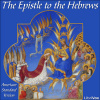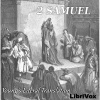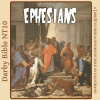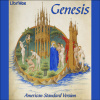Wycliffe Bible - Bible (Wycliffe) 21: Ecclesiastes
Wycliffe Bible
100%
Speed
Bibles
618
Summary
“… an alemaunde tre schal floure, a locuste schal be maad fat, and capparis schal be distried; for a man schal go in to the hous of his euerlastyngnesse...” — Eccl. xii, 5 (see Note below).Traditionally composed by Solomon sometime around 950-970 BCE but dated on linguistic evidence somewhere in the third century, this meditation on the futility of mankind’s striving can bring comfort to those of firm or fragile faith, or of no faith at all. The text used here is a revision of Wycliffe's original translation, made by his follower John Purvey in the mid-1390s. Wycliffe's chapter divisions in some cases differ from those of later versions (the King James, for example).
The Preacher, in his musings on the human condition, enlivens his melancholy observations with flashes of angry despair, resentment and even grim humour, all powerfully conveyed by Wycliffe’s translation.
Note: The King James Version avoids a direct reference to the aphrodisiac qualities of capparis (caper-berries) in its rendering: “the Almond tree shall flourish, and the grashopper shall be a burden, and desire shall faile...” (Introduction by Martin Geeson)
Authorization
By logging in, you agree to the terms and conditions.












No comments